After 205 days in space and 3,280 orbits of Earth, astronaut Jessica Meir landed safely back on earth at 1:16 a.m. EDT Friday in a remote area of Kazakhstan.
Meir, along with Soyuz Commander Oleg Skripochka and fellow NASA astronaut Andrew Morgan received preliminary health checks before flying by helicopter to Baikonur. From there, Meir and Morgan boarded a NASA plane bound for Houston.
A Caribou native, Meir traveled 86.9 million miles while on her historic space mission. She was the first Maine woman to travel to space, where she participated in the first all-female spacewalk.
And, for the last eight days, she worked alongside fellow Maine native Chris Cassidy, the first time two Mainers have been in space together.
Smiling and waving, Meir took the lead as three astronauts departed the Space Station at 6:42 p.m. EDT Thursday, floating through a transfer hatch to a Soyuz spacecraft. At Meir’s command, the vehicle undocked on schedule at 9:53 p.m. and began its descent toward Earth, nearing the end of an almost seven-month mission in space.
Hours after landing, Meir tweeted that she had “quite a ride home” from the space station and expressed “profound gratitude” to all who shaped her journey.
“We’ve returned to a different plant, but it remains a spectacular one,” she wrote.
Meir comes home in the midst of the global coronavirus pandemic, a situation she reflected on Wednesday night during a space-to-earth call with comedian Stephen Colbert. She said it has been strange to know that she and her fellow crew members are perhaps the only humans not threatened by the coronavirus because they are 250 miles above Earth.
“It’s a little difficult to believe we are truly going back to a different planet,” Meir told Colbert as he broadcast CBS’ “The Late Show” from his home.
The recovery team and medical personnel assigned to help Meir and her fellow astronauts out of the capsule and to perform post-flight checks were under medical observation for nearly a month before the landing and were tested for the coronavirus, The Associated Press reported.
Meir is no stranger to living and working in isolation, and provided some tips for people who are quarantined at home. She focuses on getting in exercise, sticking with a schedule and daily routine, treating others with kindness and respect, and squeezing in a little fun.
“I think that’s important for your psychological well-being,” she told Colbert.
In a Tweet with video posted at 5:27 p.m. Thursday, Meir wrote, “Isolation Tip #3 & my last from @Space_Station: Maintaining a healthy diet is important because it acts as your body’s fuel. See how we prepare our food in space … Zero gravity makes eating a lot more fun, but I can’t wait to enjoy my first salad on Earth soon!”
Isolation Tip #3 & my last from @Space_Station: Maintaining a healthy diet is important because it acts as your body’s fuel. See how we prepare our food in space. . . Zero gravity makes eating a lot more fun, but I can’t wait to enjoy my first salad on Earth soon! pic.twitter.com/hhy48UtkJA
— Jessica Meir (@Astro_Jessica) April 16, 2020
Earlier this week, Meir and Cassidy spoke to Maine students (and their mothers) during a special event coordinated by the Challenger Learning Center of Maine and the Maine Space Grant Consortium. Wearing polka-dot socks and floating in front of a Maine state flag, Meir described her work on the space station, adjustments to living in space and how she never missed the “creature comforts of home.”
“I haven’t missed anything at home and I think that’s especially because this is my first space flight and there is so much amazing activity and events going on all the time,” she said. “We have this extraordinary view out the window looking down on the planet.”
Viewing the planet through the space station’s cupola has been a dream of Meir’s for a long time. As a young child in Aroostook County, she told her family she wanted to be an astronaut and later wrote in her high school yearbook that her future plans were to “go for a space walk.”
Meir achieved that goal in October when she and fellow NASA astronaut Christina Koch went on the first all-female spacewalk to replace a battery charger. The pair conducted three spacewalks together, totaling 21 hours, 44 minutes outside the space station.
“Going outside the hatch in a spacesuit is the best part of our job,” Meir told Maine students on Monday. “The view we have and the fact that we’re out there on our own just contained in our own little mini spaceship almost, looking back at Earth and the vacuum of space through only your visor, is just an extraordinary feeling.”
During her time in space, Meir worked to support about 250 experiments, including research that could allow bio-artificial organs and tissues to be made in space and used for organ transplants on Earth. Meir told students this week that she also loved taking care of plants and grew two kinds of lettuce.
Meir said this week she is looking forward to the smell of fresh air, being outside among the trees and seeing her loved ones.
“It will be great to see everyone on the ground again, even if it is from a distance,” she said.
Send questions/comments to the editors.


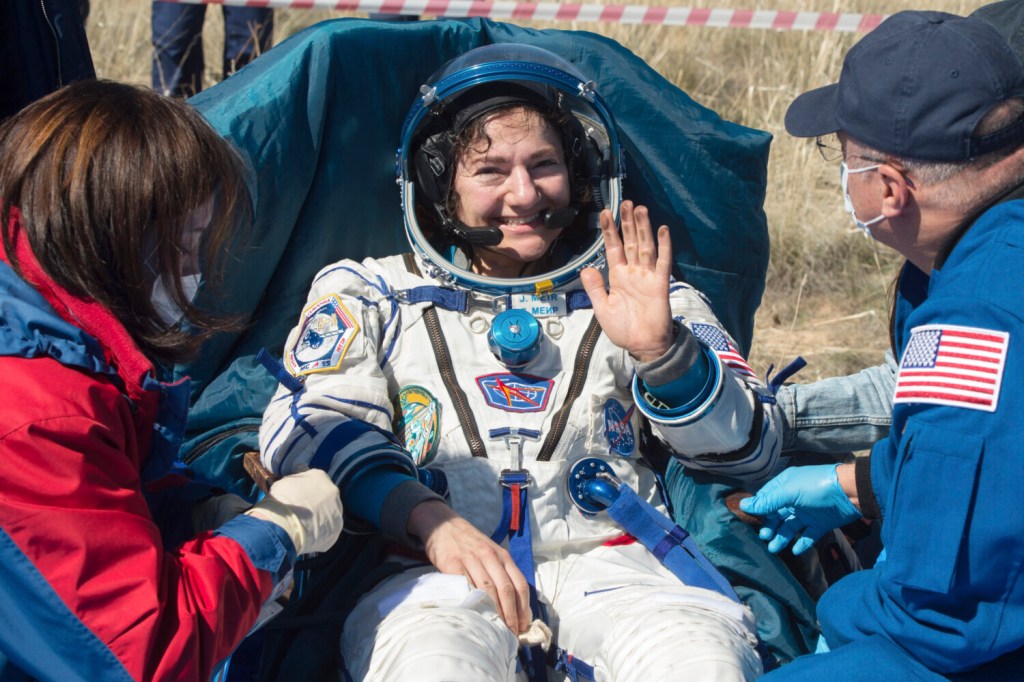
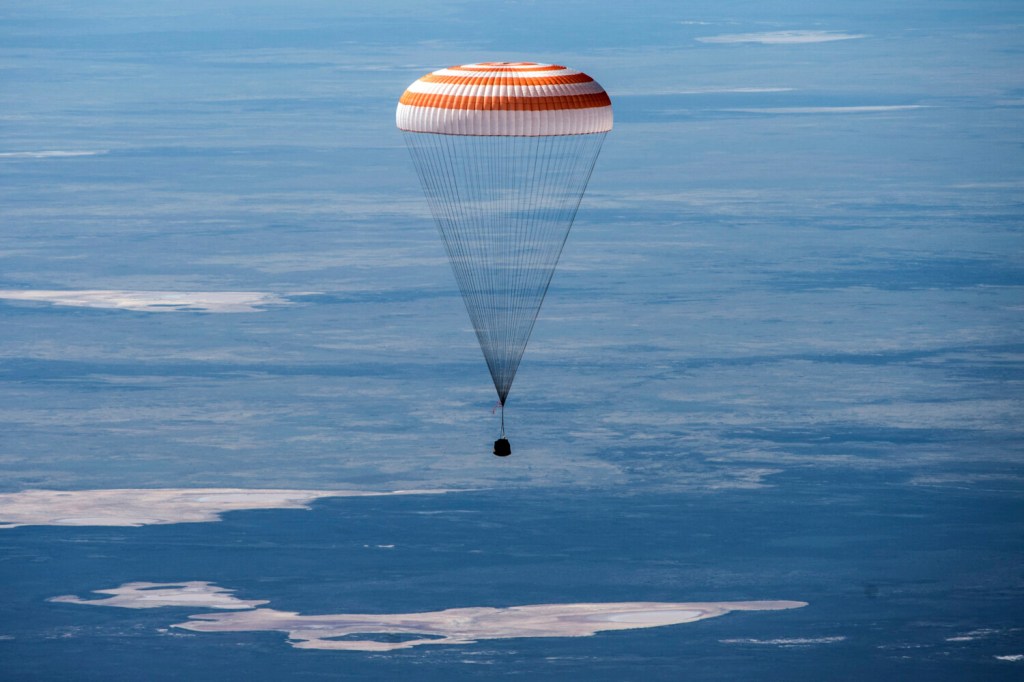
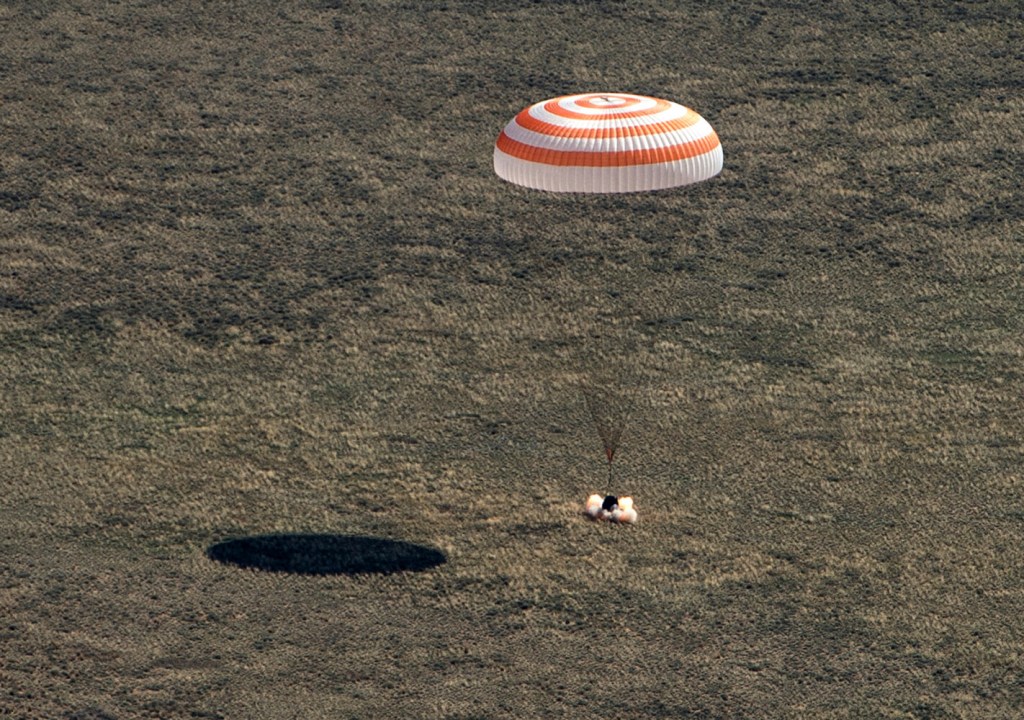
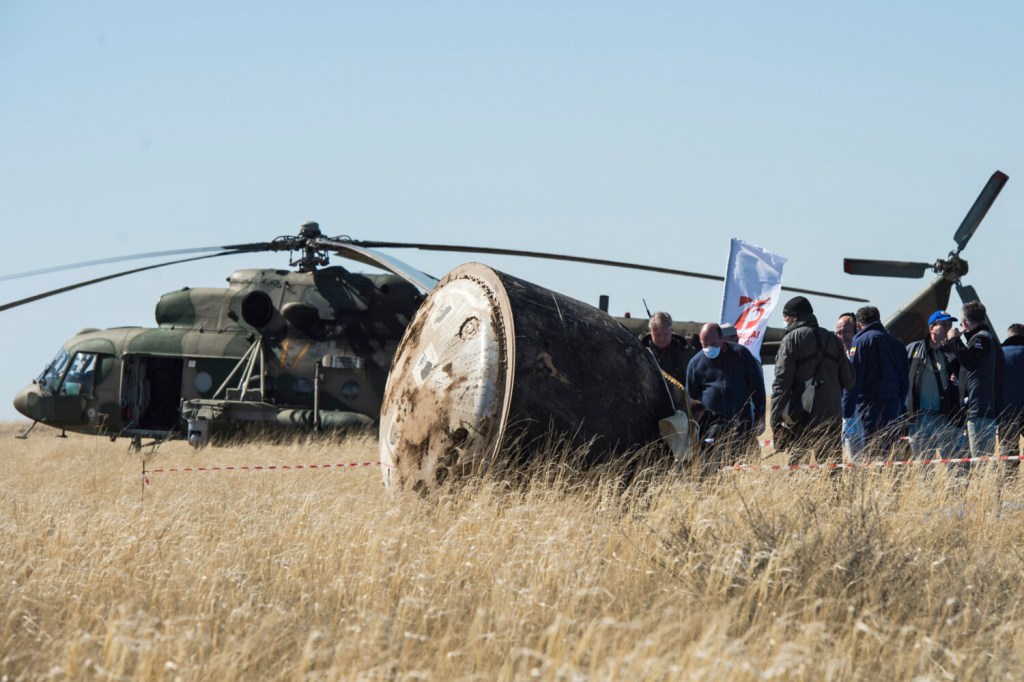
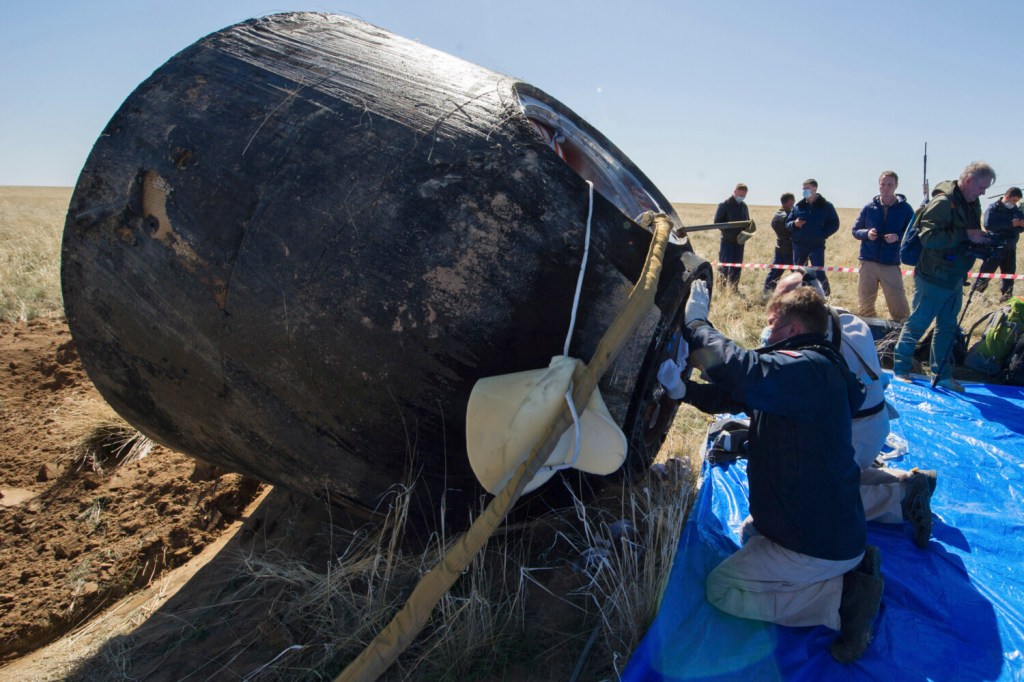
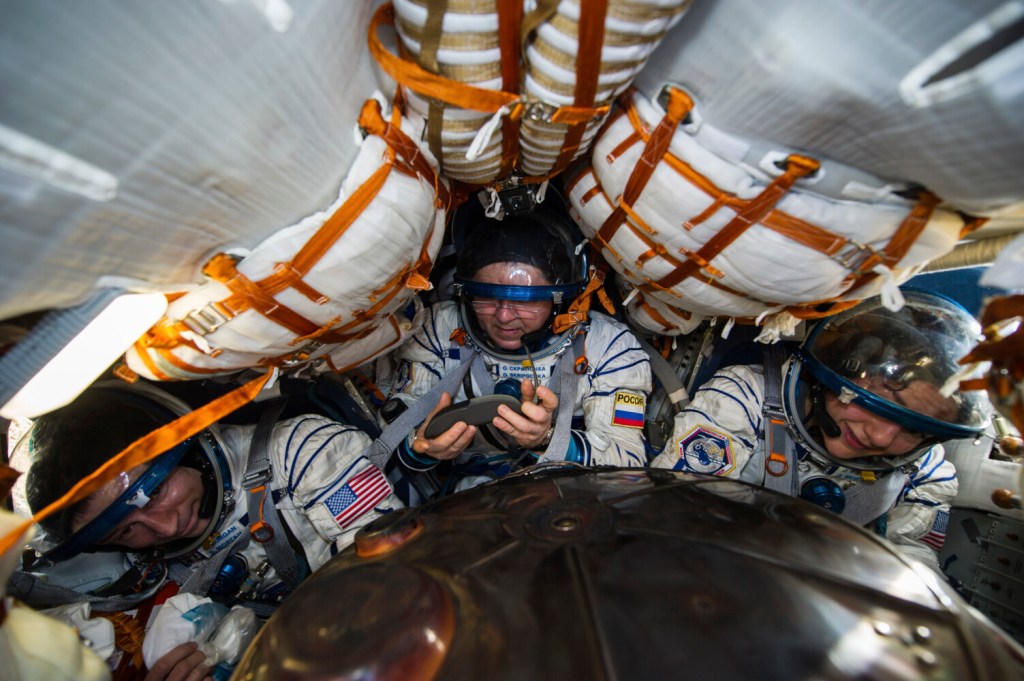
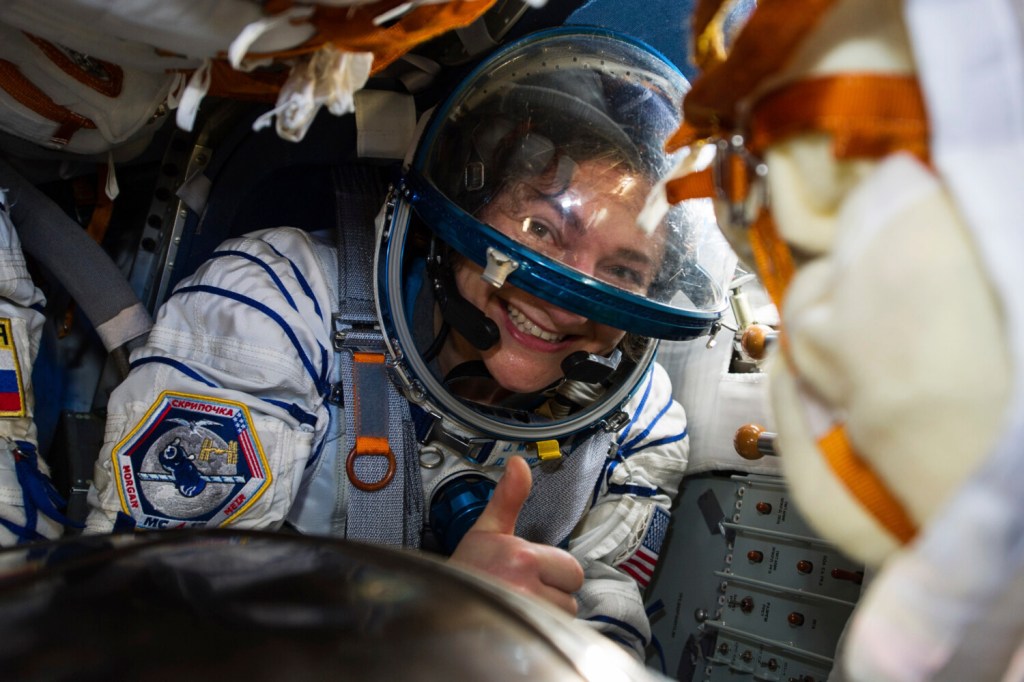
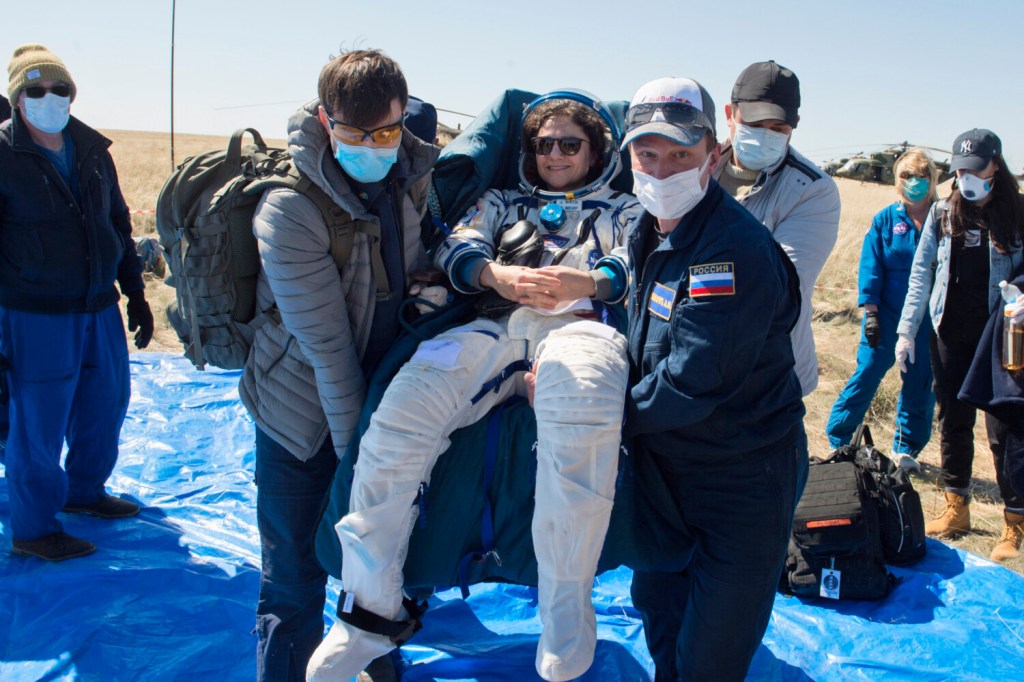
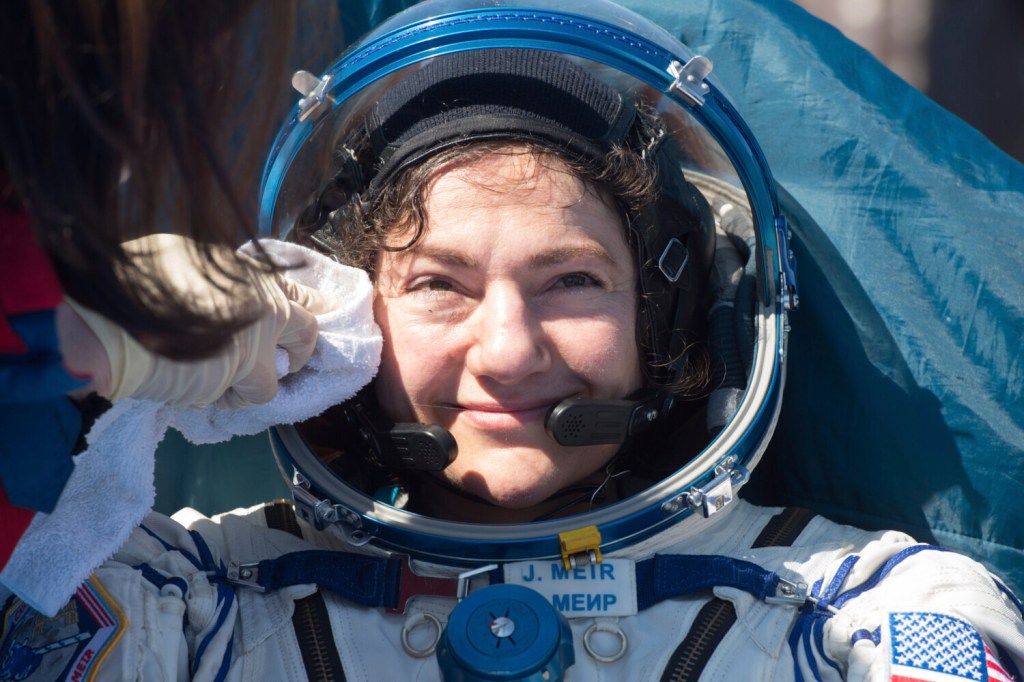
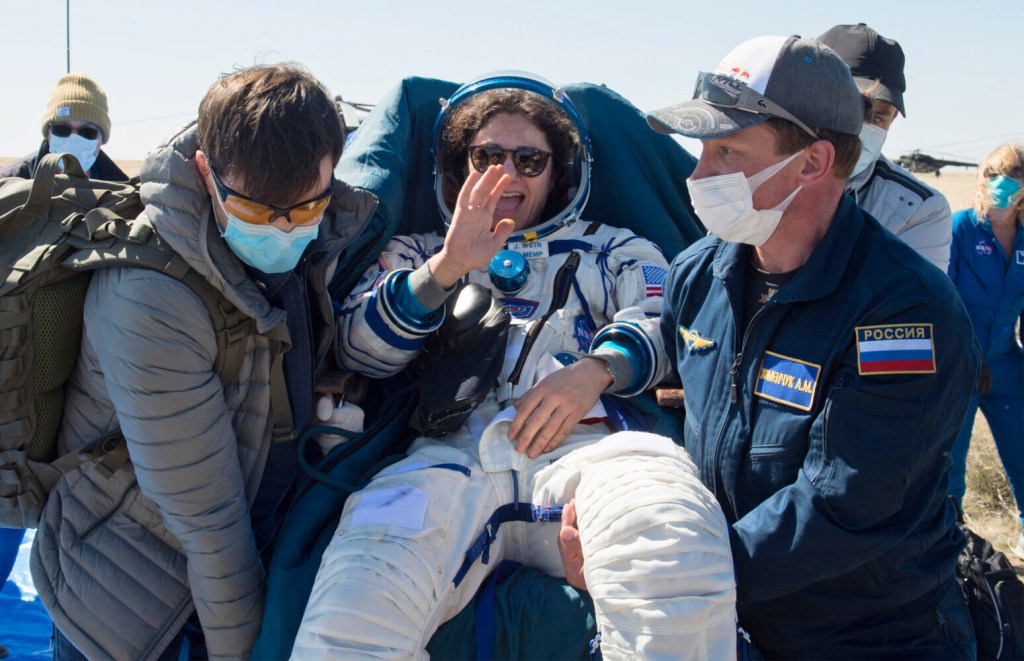
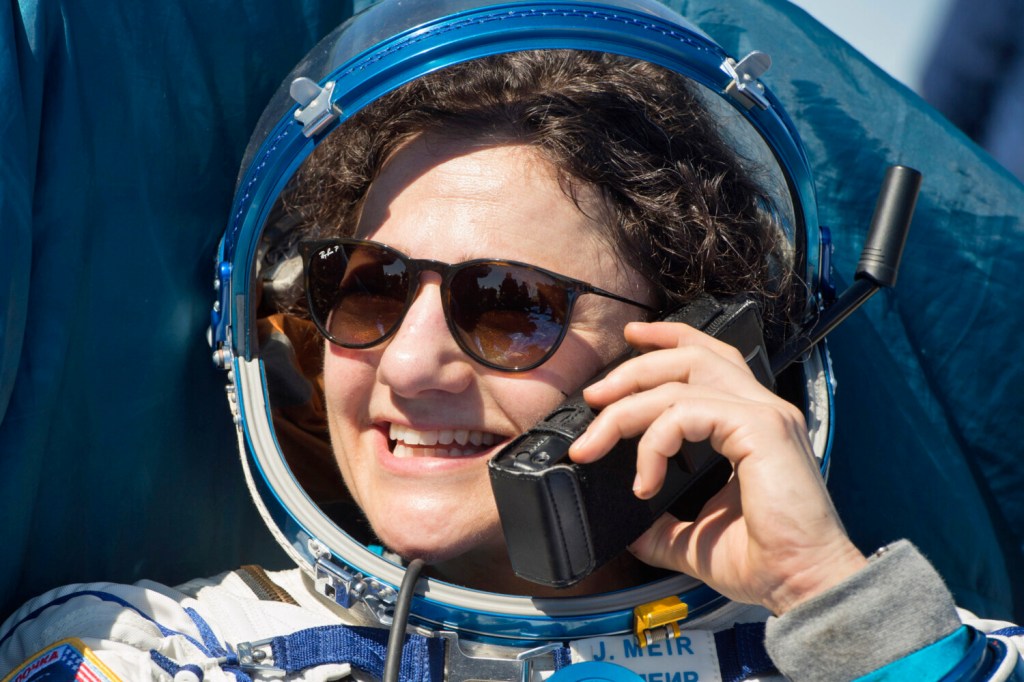
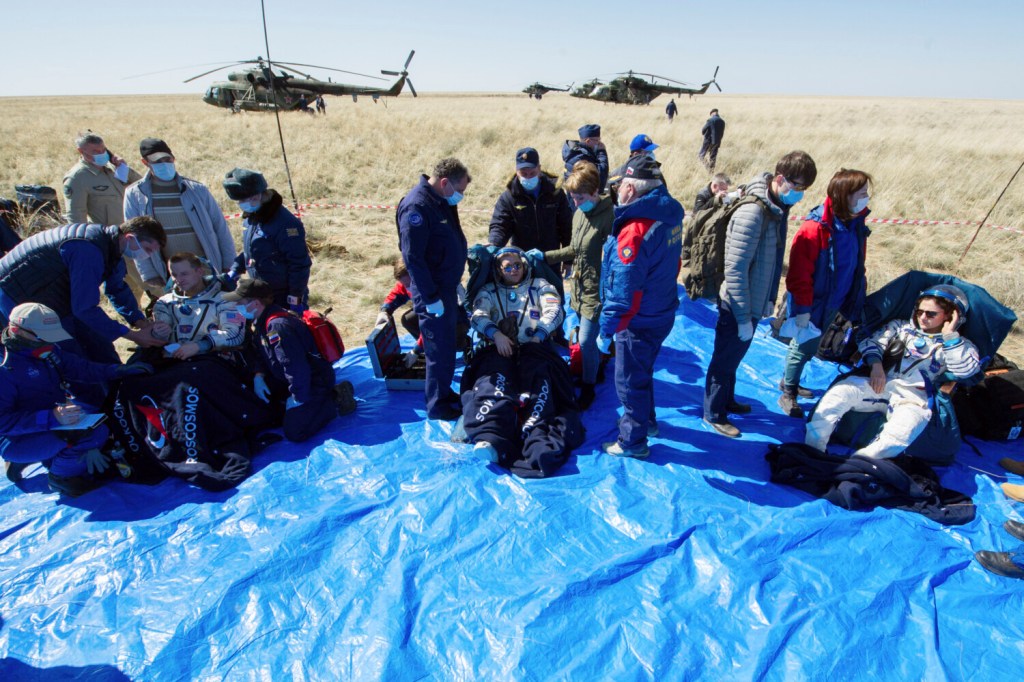
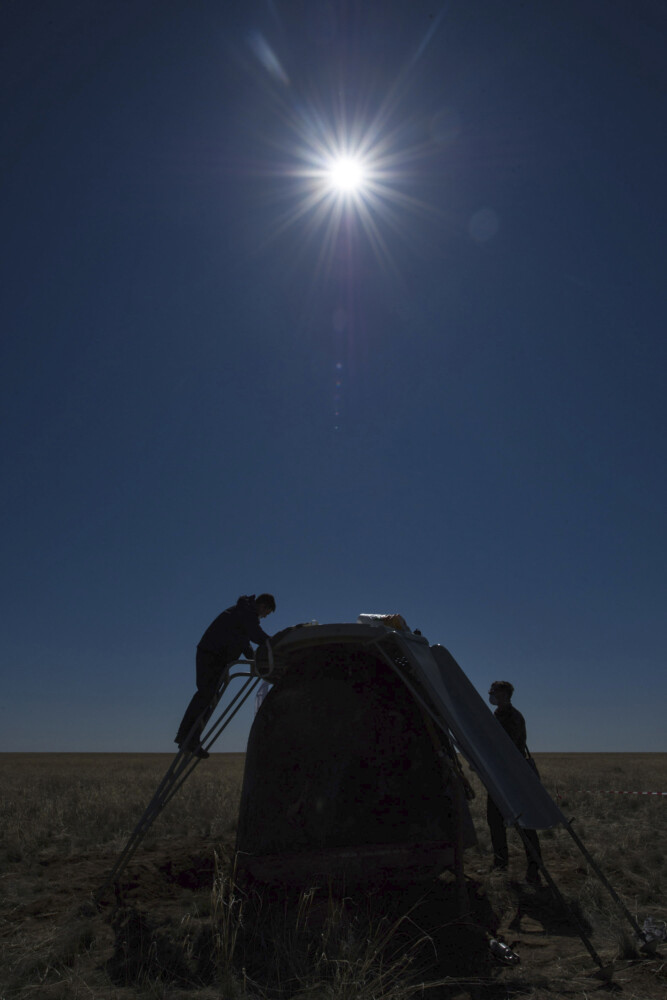

Success. Please wait for the page to reload. If the page does not reload within 5 seconds, please refresh the page.
Enter your email and password to access comments.
Hi, to comment on stories you must . This profile is in addition to your subscription and website login.
Already have a commenting profile? .
Invalid username/password.
Please check your email to confirm and complete your registration.
Only subscribers are eligible to post comments. Please subscribe or login first for digital access. Here’s why.
Use the form below to reset your password. When you've submitted your account email, we will send an email with a reset code.